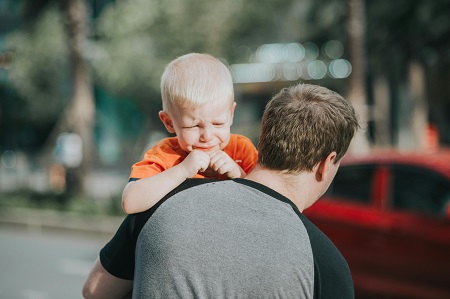(Story contributor: Kurian, advocate of sustainable tourism & green economy)
A 17-year-old boy was hospitalized as he refused to drink water during a nationwide drought. He was convinced that “if he drank water millions of people would die of thirst“.
This line seems to be taken straight out of a fictional novel or story.
Sadly, this is the first case of ‘climate change delusion‘.
From wildfires to floods; cyclones to hurricanes, the year 2021 has witnessed extreme climate events across the globe. Over the years, researchers have been studying various sectors that are affected by these extreme climate patterns like economy, physical human health, agriculture, indigenous people etc.
Even so, one important area of research is still lacking and requires due attention. A research titled Climate anxiety in young people: a call to action reports that “research is scarce on the psychological effects, particularly in young people (defined by WHO as individuals aged 10–24 years) and youth (15–24 years) who might be disproportionately affected”.

The research report also adds that “the climate crisis could precipitate new psychological conditions and worsen existing mental illnesses among young people experiencing climate anxiety, yet pervasive data gaps preclude our ability to act”.
The research referred to it as eco-anxiety, climate distress, climate change anxiety, or climate anxiety, describing anxiety related to the global climate crisis and the threat of environmental disaster.
A recent research titled Young People’s Voices on Climate Anxiety, Government Betrayal and Moral Injury: A Global Phenomenon reported that “respondents were worried about climate change (59% very or extremely worried, 84% at least moderately worried). Over 50% felt sad, anxious, angry, powerless, helpless, and guilty. Over 45% said their feelings about climate change negatively affected their daily life and functioning, and many reported a high number of negative thoughts about climate change”. The research also found that respondents marked government response to climate change negatively and told of a “greater feelings of betrayal than of reassurance”.
However, expert opinion says to distance oneself from the hyperbole that is circulating. An article in Scientific American says that “arbitrary “time left to apocalypse” predictions are not evidence-based and the story of climate change does not fit neatly into brief bullet points competing for your attention in today’s saturated media environment”.
Understanding that the feeling is valid and justified is the first step to address climate anxiety. As Merritt Juliano, the co-president of the Climate Psychology Alliance North America says “we shouldn’t hide from it or ignore it”.
Another way to cope with such anxiety is to seek therapeutic help. The American Psychiatric Association agrees to the need for mental health services during climate-related disasters. Unfortunately, the association also warns about “often a disruption in services or a decrease in the availability or accessibility of services”.
Apart from that participants in a virtual Youth Environment Assembly organized by The Children and Youth Major Group to the UN Environment Programme (UNEP) shared “nature-based healing and reconnecting with nature; channeling energy towards activism; fundraising for conservation organizations; sharing concerns with friends; staying informed; and focusing on actions they can take”.
Climate anxiety or any psychological stressors faced by individuals due to climatic variations should be addressed and acted upon. For that research in this sector should be encouraged as well as government intervention should be increased.
Feature photo credit: Gray scale Photo of Man Covering Face With His Hands by Daniel Reche via pexels.com




